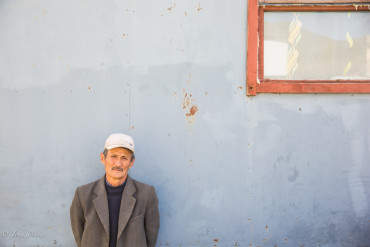Posts Tagged "Tash Rabat"
Nazira: Mother, Business Owner
TASH RABAT: Nazira, 32, grew up around foreign tourists in a mountainous area of Kyrgyzstan near the Chinese border. She helped her parents during the summers to service the foreigners staying in the family's yurts to visit the nearby 15th century Caravanserai. Nazira later went to university to study languages, but one summer between semesters, she met a shepherd who was grazing his livestock in the area. She fell in love and left university. ''I like romantic men, but he isn't very romantic. He just works all the time,'' said Nazira with a laugh in a kitchen inside a train wagon. Nazira, who speaks good English, said she would like to learn Spanish, but doesn't have the time at the moment between taking care of her children and the tourists. Her family is building a new home in the nearby town, which she hopes to turn into a B&B for travelers during the offseason.
Jyrgalbek: Tourism Business, Shepherd
TASH RABAT, KYRGYZSTAN: When the Soviet Union collapsed, a collective farm near the Kyrgyz border with China was carved up. Some workers got goats, others yaks. Jyrgalbek's father received a home attached to the collective farm in the carve up. It would probably have been worth nothing were it not for the fact it lay some 200 meters from a 15th century caravanserai. With borders opened after the Soviet collapse, foreigners started to come visit the Caravanserai and pitch tents to sleep overnight. The family noticed this and considered the potential to make money from tourism. Jyrgalbek, a mechanic who lost his town job after the Soviet collapse, took over the house in the mountains, moving his family there. At first, he started by cooking food for the foreigners while attending to the livestock he owned in the area. Around 1997, he started to set up some yurts for the tourists to sleep in. Nearly 20 years later, he and his daughter have about 20 yurts, which helps generate a good portion of their yearly earnings. The rest comes from selling livestock, such as horses, yaks and sheep at the Sunday market.



